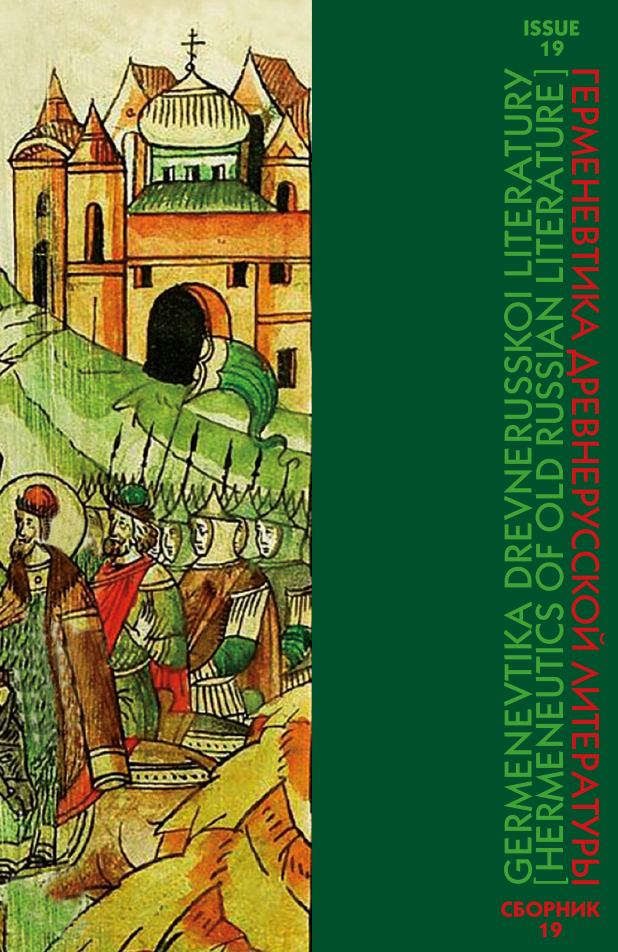Abstract:
The article examines the functioning of a small genre — genre of prayer in the Vita of Mikhail Yaroslavich of Tver. The importance of prayers is determined, first of all, by the object of image and situation in which the main character is shown. Most of the prayers, which are supplicating in function, containing an individual appeal to God, are concentrated in the scene of Mikhail of Tver’s languor in prison on the eve of execution. They are based on the Psalter text, to which a hero constantly refers. The skillful and masterful selection of Holy Scriptures texts indicates that hagiographer is a well-educated and knowledgeable person connected with the church surroundings. Prayers play an important role in revealing an image of the main character: thanks to them, the psychological portrait of the Russian prince-martyr is recreated.
REFERENCES
1 Karavashkin, A.V. “Istoricheskaia analogiia v sisteme universalii drevnerusskoi literatury: na materiale agiografii XIV–XV vv. (k postanovke voprosa)” [“Historical Analogy in the System of Universals of Old Russian Literature: Based on the Hagiography Material of the 14th – 15th Centuries (to the Formulation of Question)”]. Literatura Drevnei Rusi [Literature of Old Russia]. Moscow, Prometei Publ., 2004, pp. 47–68. (In Russian)
2 Kolesov, V.V. Mir cheloveka Srednevekovoi Rusi [The Human World of Medieval Russia]. Moscow, Akademicheskii proekt Publ., 2019. 659 p. (In Russian)
3 Rudi, T.R. “Topika russkikh zhitii (voprosy tipologii)” [“Topics of Russian Vitaes (Questions of Typology)”]. Russkaia agiografiia. Issledovaniia. Publikatsii. Polemika [Russian hagiography. Researches. Publications. Controversy]. St. Petersburg, Dmitrii Bulanin Publ., 2005, pp. 59–101. (In Russian)
4 Starodumov, I.V. Zhanrovaia spetsifika povestvovanii o posmertnykh chudesakh sviatykh podvizhnikov v sostave drevnerusskoi agiografii [Genre Specificity of Narratives on the Posthumous Miracles of the Holy Ascetics as Part of the Old Russian Hagiography: PhD Thesis, Summary]. Omsk, 2009. 20 p. (In Russian)
5 Trofimova, N.V. Poetika drevnerusskogo voinskogo povestvovaniia [Poetics of the Old Russian Military Narrative]. Moscow, Moscow Pedagogical State University Publ., 2017. 276 p. (In Russian)






